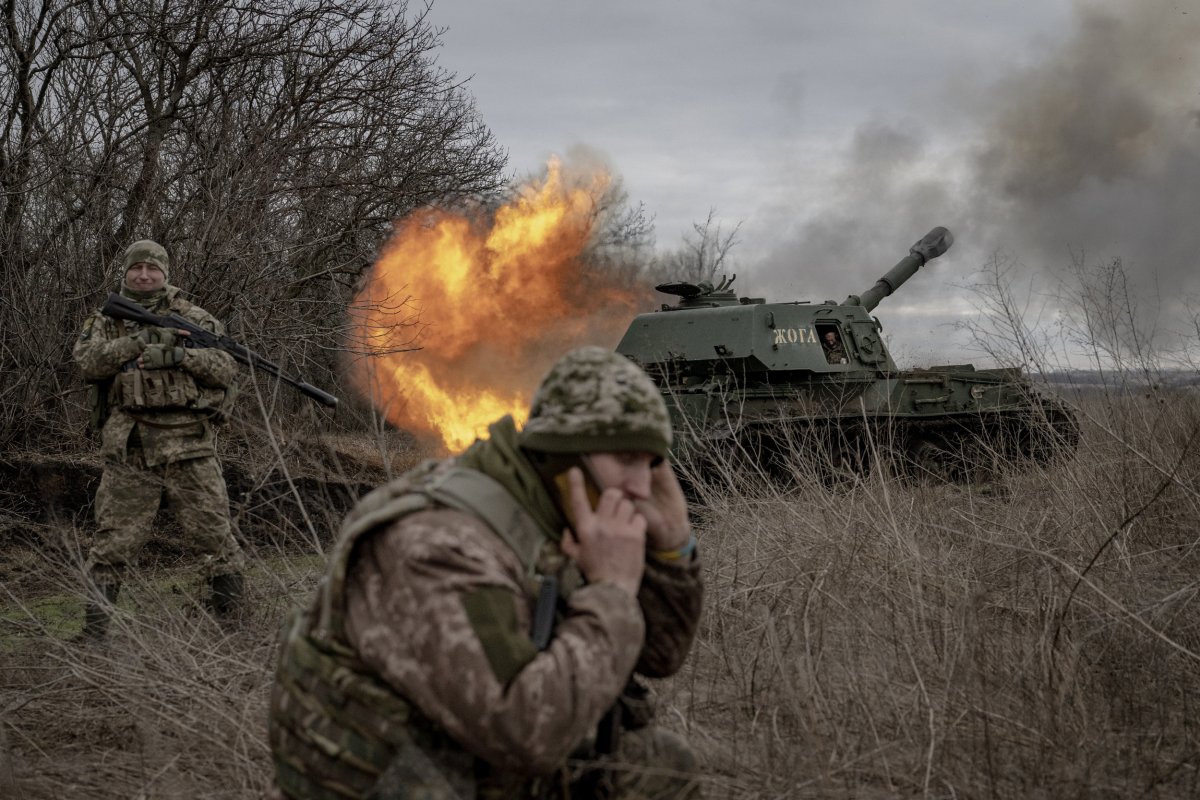A Chinese specialist on Russia has delivered a grim forecast for Vladimir Putin's war in Ukraine: that it is doomed to fail.
Peking University professor Feng Yujun is also cooling on the future of Beijing-Moscow relations, writing in a recent op-ed in The Economist that the two nations have diverging visions of the future of global affairs.
Feng's assessment is a departure from the messaging of the Chinese government. Despite claiming to be neutral, Beijing has tacitly supported Moscow's war from the beginning, from opposing the West's retaliatory sanctions to banning criticism of Russia in Chinese social media.
Feng presented four major factors that he believes will "make Russia's eventual defeat inevitable."
First on the list is the "level of resistance and national unity shown by Ukrainians, which has until now been extraordinary."
The second factor is the international support for Kyiv, which the academic said "remains broad," though he acknowledged the administration of President Volodymyr Zelensky finds it wanting.
The third factor at play is the "nature of modern warfare," according to Feng, who described this as a combination of "industrial might and command, control, communications and intelligence systems."
Russia's war machine is at a disadvantage here, Feng said, because the country never fully recovered from the "dramatic deindustrialization" that followed the collapse of the Soviet Union.
Russia's fourth critical deficit is a lack of information among Kremlin decision-makers at the highest levels, Feng said. Trapped inside an "information cocoon," Putin and his national security advisers don't have ready access to accurate intelligence, limiting their capacity to fix mistakes.
Feng contrasted this with Ukraine's "more flexible and effective" government.
The Chinese and Russian foreign ministries did not immediately return Newsweek's emailed requests for comment.
Feng went on to describe how the war's unintended consequences have weakened Moscow's position in Europe.
Russia has inadvertently revitalized NATO, which has bolstered the alliance's presence in Eastern Europe, with its membership augmented by the addition of Sweden and Finland. Meanwhile, most of NATO's 32 member states have increased their defense budgets since the war began.

Feng also said "shrewd observers" have seen Beijing's approach to Moscow transition from a "no-limits partnership," which was declared by Putin and Chinese President Xi Jinping just before the invasion, to China's standard position of nonalignment.
"China's relations with Russia are not fixed, and they have been affected by the events of the past two years," he wrote.
The day before Feng's op-ed was published, Russian Foreign Minister Sergey Lavrov and his Chinese counterpart, Wang Yi, convened in Beijing for talks.
The diplomats said that their countries opposed the "bloc-based" security alliances of the U.S. and its allies and that they'd discussed a "new security architecture in Eurasia" to serve as a counter to NATO's influence.
China has helped keep Russia's isolated economy afloat with massively increased trade and investment. Though Beijing denies directly contributing to Moscow's war-fighting capabilities, the Associated Press last week cited Biden administration officials as saying the vast majority of Russia's machine tool imports and microelectronics—used to construct tanks, aircraft and missiles—came from China last year.
Also, drones and components made by Chinese companies have found their way onto the battlefield in Ukraine, according to reports.
Yet recent reports show Chinese banks and enterprises treading carefully to avoid secondary sanctions recently introduced by Washington. This has included blocking transactions with Russian traders in sensitive industries.
Uncommon Knowledge
Newsweek is committed to challenging conventional wisdom and finding connections in the search for common ground.
Newsweek is committed to challenging conventional wisdom and finding connections in the search for common ground.
About the writer
Micah McCartney is a reporter for Newsweek based in Taipei, Taiwan. He covers U.S.-China relations, East Asian and Southeast Asian ... Read more
To read how Newsweek uses AI as a newsroom tool, Click here.








